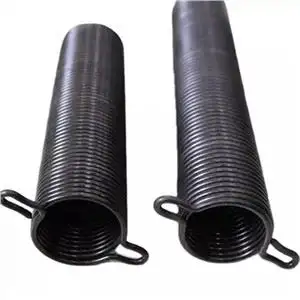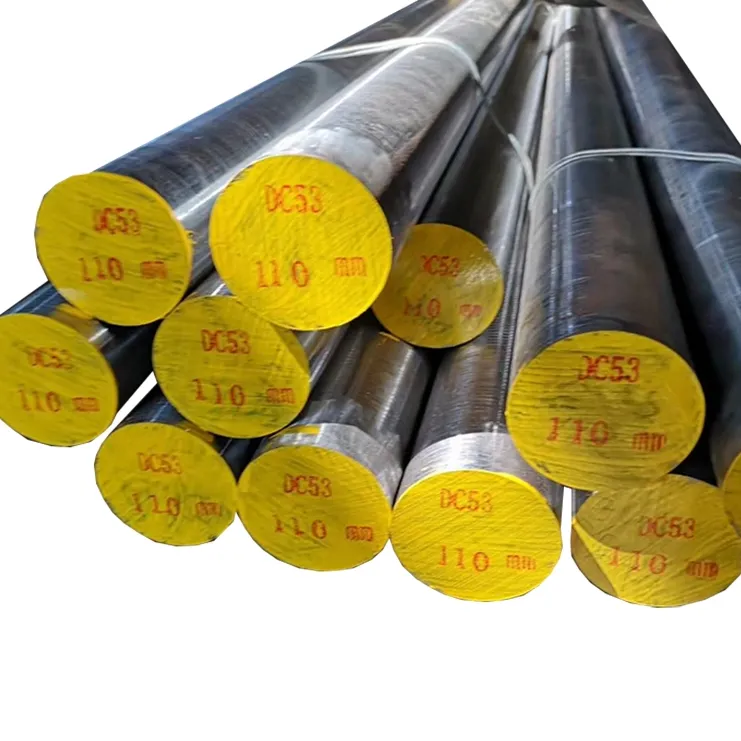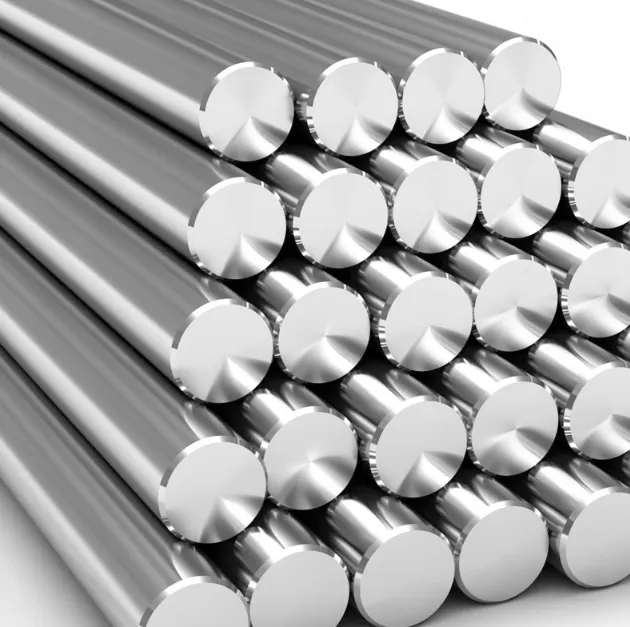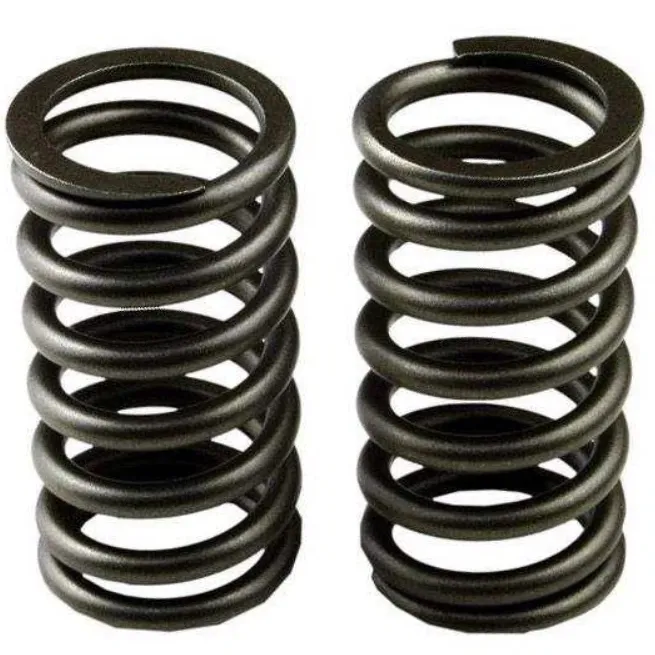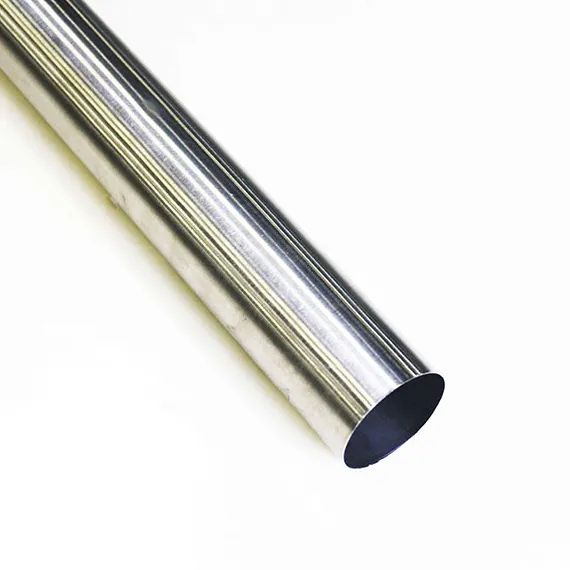5160 alloy steel springs deliver outstanding fatigue resistance, high toughness, and consistent performance under cyclic loading conditions. These springs feature a balanced chromium-carbon matrix, enabling them to withstand demanding applications in automotive suspensions, heavy machinery, agricultural implements, and performance tooling. MWalloys, based in China, offers 100 % factory-price advantages, rapid dispatch of stock items, and comprehensive customization capabilities, ensuring that every batch meets your precise specifications.
1. What is 5160 alloy steel spring
5160 is a chromium-alloyed spring steel belonging to the SAE 5160 family. Its distinctive combination of carbon and chromium endows it with enhanced wear resistance, excellent hardenability, and reliable ductility. Engineers frequently select 5160 when springs must endure repeated flexing without premature failure.
2. Chemical Composition
The following table presents typical chemical limits for SAE 5160 spring steel:
| Element | Min (%) | Max (%) |
|---|---|---|
| Carbon (C) | 0.56 | 0.64 |
| Chromium (Cr) | 0.70 | 0.90 |
| Manganese (Mn) | 0.70 | 1.00 |
| Silicon (Si) | 0.15 | 0.35 |
| Phosphorus (P) | – | 0.035 |
| Sulfur (S) | – | 0.040 |
Table 1: Chemical composition of 5160 alloy steel springs.
3. Mechanical Performance
Seasoned metallurgists rely on the following properties when specifying 5160 springs:
| Property | Typical Value |
|---|---|
| Tensile Strength (Rm) | 1,020 – 1,150 MPa |
| Yield Strength (Re 0.2) | 820 – 910 MPa |
| Elongation (A %) | ≥ 10 % |
| Hardness (HRC after quench/tempering) | 40 – 48 HRC |
| Fatigue Limit (at 10⁷ cycles) | ≈ 600 MPa |
Table 2: Mechanical characteristics after typical heat treatment.
4. Heat Treatment Protocols
-
Austenitizing: Heat to 830 – 860 °C, hold for 15–30 minutes.
-
Quenching: Oil quench at 60 – 80 °C to transform austenite into martensite.
-
Tempering: Reheat to 400 – 500 °C, hold for 1–2 hours, then air cool. Adjust tempering temperature to fine-tune toughness versus hardness.
Precise control of furnace atmosphere and cooling rate yields consistent microstructure, minimizing internal stresses.
5. Corrosion Resistance and Surface Treatments
Standard 5160 provides moderate corrosion resistance due to its chromium content. Surface enhancement techniques include:
-
Phosphate Coating: Improves paint adhesion and fatigue life.
-
Electroless Nickel Plating: Uniform coverage, boosts wear and corrosion resistance.
-
Black Oxide Treatment: Thin conversion coating for mild environments.
MWalloys can deliver springs with any of these finishes or coordinate OEM-approved custom coatings.
6. Manufacturing Workflow
-
Billet Preparation: Raw 5160 bar stock undergoes ultrasonic testing and microstructural validation.
-
Forming: CNC coiling machines shape springs to precise geometry; process parameters programmed per batch.
-
Stress Relieving: Springs held at 550 – 650 °C to remove residual stresses from coiling.
-
Heat Treatment: In-house vacuum furnaces achieve quenching/tempering per client’s design.
-
Grinding & End-Forming: Ends squared or ground true, with optional shot-peening to elevate fatigue strength.
-
Quality Inspection: Dimensional checks, hardness tests, fatigue sampling, and magnetic particle inspection ensure total compliance.
7. What is a 5160 alloy steel spring used for?
5160-grade springs excel in scenarios demanding repeated elastic deformation:
-
Automotive Suspension: Leaf springs, coil springs for trucks and performance cars.
-
Industrial Equipment: Vibration-damping springs in presses and stamping machines.
-
Agricultural Machinery: Springs in plows, harrows, and seed drills.
-
Specialty Tools: Torsion bars, knife springs, and return mechanisms.
Clients in global aerospace, motorsport, and heavy industries rely on the consistency of 5160 springs.
8. Dimensional and Weight Comparison
Below is a sample comparison for common coil spring sizes:
| Outer Diameter (mm) | Wire Diameter (mm) | Free Length (mm) | Active Coils | Approximate Weight (g) |
|---|---|---|---|---|
| 50 | 8 | 200 | 10 | 120 |
| 60 | 10 | 250 | 8 | 210 |
| 80 | 12 | 300 | 12 | 360 |
| 100 | 14 | 350 | 9 | 580 |
Table 3: Standard spring dimension versus weight.
Custom dimensions are available on request; MWalloys supports rapid prototyping and small-lot production.
9. Global Price Comparison 2025
An approximate price benchmark (per kg, USD) across major markets:
| Region | Average Price (USD/kg) |
|---|---|
| China | 3.50 |
| United States | 5.20 |
| European Union | 6.00 |
| India | 3.80 |
Table 4: 2025 price references for 5160 spring steel.
MWalloys guarantees direct factory pricing, undercutting local distributors by up to 30 %.
10. What is 5160 spring steel equivalent to?
| Standard / Country | Equivalent Grade | Notes |
|---|---|---|
| AISI/SAE (USA) | 5160 | Base grade: 0.6% Carbon, ~0.8% Chromium spring steel |
| EN (Europe) | 51CrV4 (EN 10089) | Similar composition but with Vanadium; better fatigue strength |
| DIN (Germany) | 1.8159 / 51CrV4 | Popular for automotive and heavy-load springs |
| JIS (Japan) | SUP10 | Japanese equivalent used for suspension springs |
| GB (China) | 60CrMnA | Closest Chinese equivalent; slightly higher Mn, used for heavy-duty springs |
| ASTM | A29 Grade 5160H | Hot-wrought bar version; sometimes "H" indicates guaranteed hardenability |
-
51CrV4 vs. 5160: 51CrV4 contains vanadium, enhancing its fatigue strength and tempering resistance, making it slightly superior for cyclic-load environments.
-
SUP10 (JIS): Widely used in Japanese automotive spring applications.
-
60CrMnA (China): Common alternative in China; close composition, used for leaf and coil springs.
-
Heat Treatment Compatibility: All equivalents are heat treatable for high tensile strength and toughness.
11. Customization and Supply Advantages
-
Full Customization: Coil geometry, surface finish, hardness targets tailored to project needs.
-
Factory Direct Pricing: Eliminating intermediaries offers transparent cost savings.
-
Rapid Stock Dispatch: Standard springs ship within 3 business days; custom orders within 10 – 15 days.
-
Quality Assurance: Full traceability from melt certificates to final inspection reports.
-
Technical Collaboration: MWalloys’ in-house metallurgists partner on new designs, ensuring optimized performance.
12. Sustainability and Regulatory Compliance
MWalloys sources 5160 billets from certified mills with ISO 9001 and ISO 14001 accreditation. Our processes minimize waste, employ water-based quenchant recovery, and adhere to RoHS and REACH directives.
13. Frequently Asked Questions
-
What distinguishes 5160 from 9254 spring steel?
5160 features chromium for improved toughness; 9254 relies on higher silicon and vanadium. -
Can 5160 springs operate at elevated temperatures?
Yes, service up to 200 °C is feasible with proper tempering adjustments. -
How does shot-peening enhance fatigue life?
It introduces compressive surface stresses that retard crack initiation. -
Are zero-coil ends required for all springs?
Not always; depends on seating requirements and load distribution. -
What tolerance levels are standard?
Diameters ±0.5 mm, lengths ±1 mm, load ±5 %. Tighter tolerances available. -
Is 5160 recyclable?
Fully recyclable through conventional scrap-based steelmaking. - Can MWalloys handle large-volume orders?
Yes, capacity exceeds 500 tonnes per month. -
What certifications accompany shipments?
Material Test Reports (MTRs), Certificate of Compliance (CoC), and nondestructive test records. -
Do you support secondary operations?
Yes, inclining bending, assembly, and sub-assembly integration are offered.

